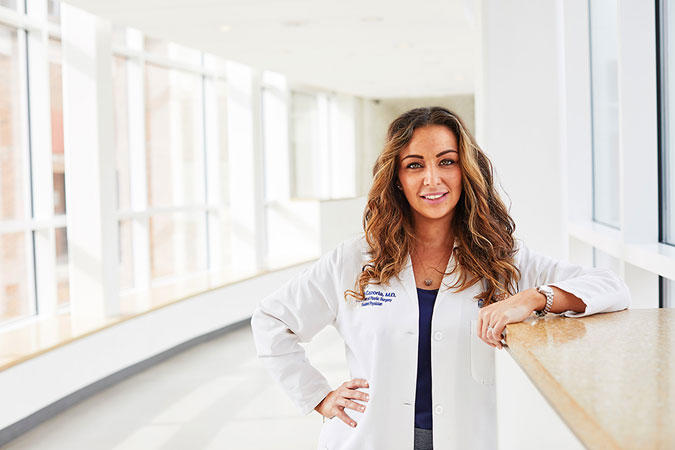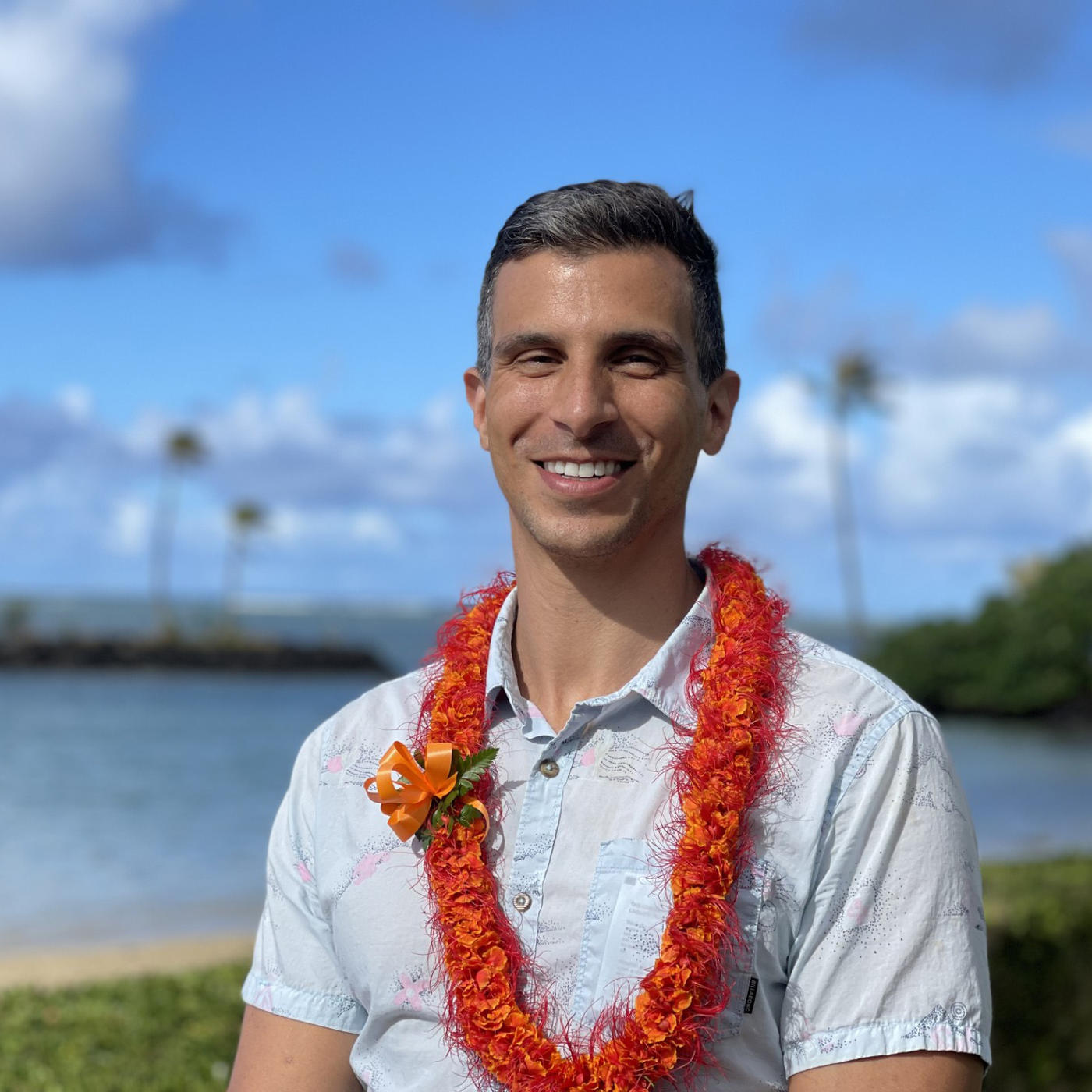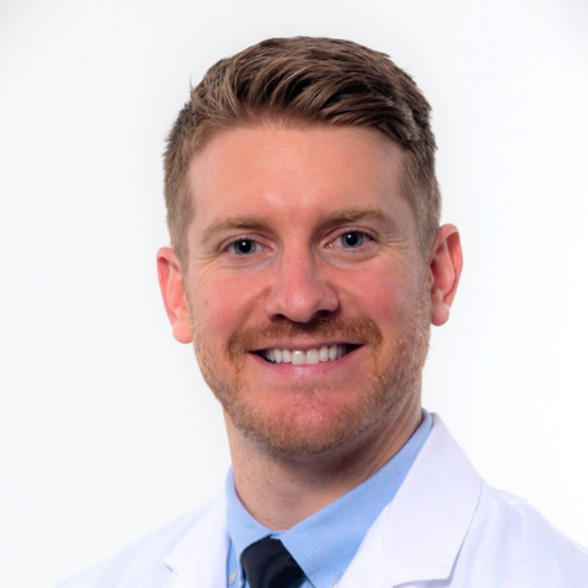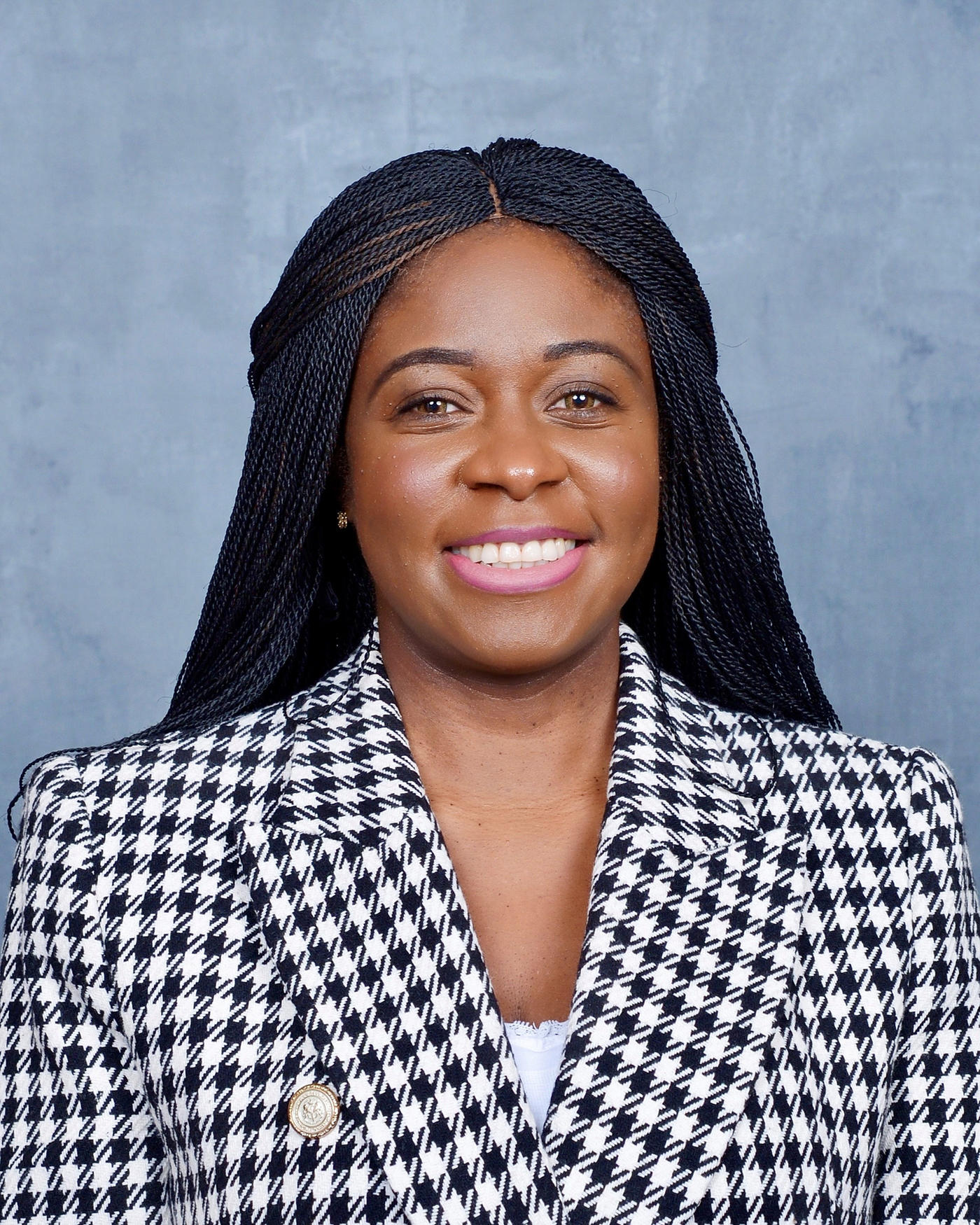Going to the hospital can be a stressful experience for anyone. But for the 8 percent of the U.S. population with limited English proficiency[1], a hospital visit presents a whole new set of risks—all stemming from the myriad of opportunities for critical medical information to be lost in translation.
AUC alumna Sarah Cazorla, MD ’11 is acutely aware of the need for quality interpretation services between medical staff and patients. A plastic and reconstructive surgery fellow at the University of Virginia, Dr. Cazorla has always had a knack for languages: She studied Spanish and Portuguese during college and briefly considered going into medical translation.
But despite not officially pursuing that field, Dr. Cazorla has found her skills to be valuable—and sorely needed—in hospitals throughout her medical training. Her education has taken her to several different regions of the country: She earned her undergraduate degree at the University of Tampa, did clinical rotations in New York and Boston, and completed her general surgery residency at Texas Tech University Health Sciences Center before heading to Charlottesville, Virginia for fellowship.
“I use my Spanish all the time,” Dr. Cazorla said. “It depends on the region—I also used lots of Portuguese in New York and Boston. It’s been an asset to me all the way through fellowship.”
The Risks of Miscommunication
Too often, she says, the interpretation resources offered by hospitals are not enough to accurately convey the complexities of a patient’s case. While most hospitals offer third-party interpreters by phone, the number of medical centers with comprehensive in-person services is much lower.
And even if a hospital does have interpreters on the ground, there’s no guarantee they’re being utilized: A 2014 report published in the Journal for Healthcare Quality included accounts indicating that medical staff would sometimes ignore interpretation policies and go without so as not to delay necessary treatment. According to the report, patients with limited English proficiency had higher rates of medication errors and lack of informed consent.[2]
Among professional interpreters, the quality—and associated risk—can also vary greatly. According to a 2012 study published in the Annals of Emergency Medicine, for professionally trained interpreters with at least 100 hours of training, the proportion of errors with potential clinical significance was just 2 percent – but that figure jumped to 12 percent for interpreters with fewer training hours.[3]
What does a clinically significant error look like? It could be as simple as mistaking one word for another that sounds deceptively similar. A Modern Healthcare article on the topic referenced an example of a clinician speaking French to a Haitian patient who only spoke Creole. Despite surface similarities between the two languages, there are plenty of inconvenient differences: In French, “estomac” means stomach, but the nearly-identical Creole word “lestomak” can mean chest.[4] Confusing one for the other—and performing a procedure on the wrong one—could be life-threatening for the patient.
Bridging the Gap
In the absence of adequate interpretation, Dr. Cazorla said people naturally try to understand what’s happening and make decisions for themselves by seeking out other sources—which are hardly reliable.
“Because of this lack of resources, I’ve found people asking their children, the janitor, or whoever is around to translate for them,” said Dr. Cazorla. “It’s not only inappropriate; it’s unsafe. They don’t get the level of interpretation required in complex surgery. You can’t know that they truly understand what’s happening.”
And while she doesn’t consider herself a substitute for a professional medical interpreter, Dr. Cazorla is grateful to be able to communicate with patients as much as she can, even if it’s just to offer some comfort or reassurance.
“It’s wonderful to be able to bring relief to patients and their family members, especially with a traumatic event like surgery,” she said. “You can explain to them in their own language what’s going on, answer their questions, and reassure them. They can’t get that same reassurance from a third-party interpreter over the phone as you would with your own doctor.”
Sources
[1] https://www.migrationpolicy.org/article/limited-english-proficient-population-united-states
[2] https://www.modernhealthcare.com/article/20140830/MAGAZINE/308309945
[4] https://www.modernhealthcare.com/article/20140830/MAGAZINE/308309945





